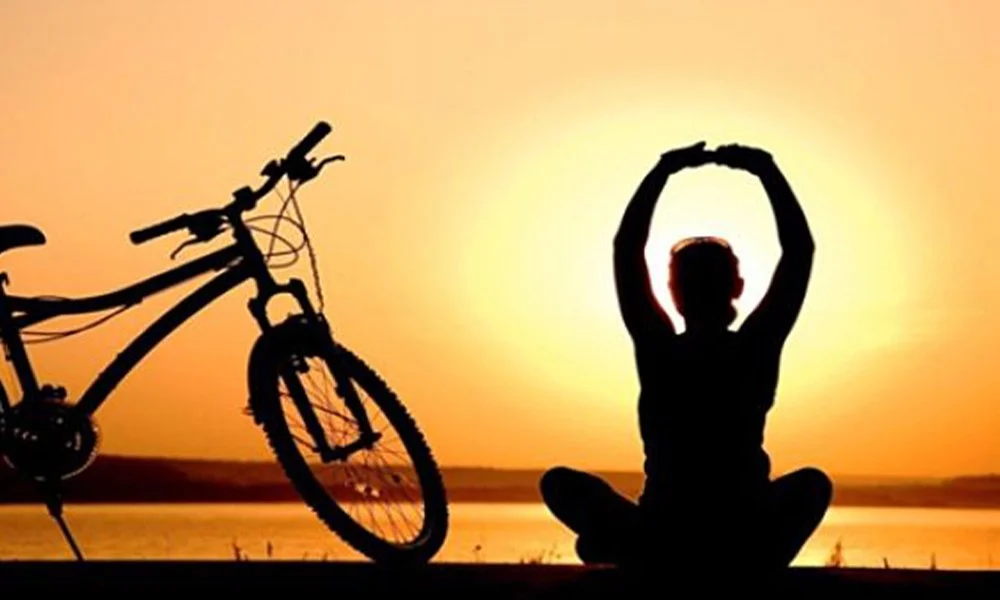Tackling Anxiety Through Exercise
Combatting Stress And Anxiety With Exercise
Firstly, let's be clear about what anxiety and stress are. Feeling anxious does not mean you suffer from anxiety, nor does being stressed mean you suffer from stress. The differences being, feeling anxious or stressed in the normal ways are reactions to events outside of our control. They are our human responses to situations around us, to which we feel pressured, threatened or out of control. They are completely normal or expected reactions. However, suffering from one, or both of these conditions means feeling all the same negative emotions with no logical or realistic explanation as to why we feel this way. It is the same difference with feeling a little bit upset to suffering from debilitating depression - there is no understandable reason why someone may feel the way they do but they suffer crippling emotions anyway.
This is why a person suffering from stress or anxiety can never answer the questions 'why are you anxious?' or 'what are you even worried about?'. The truth is, they don't even know, for there is no rational explanation for the way they feel or the extent to which they feel that way.
In spite of the differences between the two (i.e. one is a natural response and one is a condition), both suffer the same effects and both can be treated similarly.
Regardless of the reason why someone is suffering (if there is a reason), one incredibly powerful method of treating anxiety or stress is exercise.
When anxious, we have a huge build up of nervous energy; a restlessness that can be utterly exhausting, leading to poor sleep, heart palpitations, a shortness of breath and an overwhelming sense of unease. It's crippling and it can't be shaken off. But can it be alleviated?
Yes. 'Nervous' energy or not, this is still an excess build up of energy so the most obvious way to treat it is to release some of this energy. The body is a clever thing and will respond automatically by trying to relieve surplus energy with uncontrollable habits and traits, e.g. bouncing your knee nervously under the desk, grinding your teeth or pacing up and down; these are all defence mechanisms employed by the human body. Some people even help the body with the aid of stress balls or a punch bag, or simply by rapping a pencil on the table or drumming fingers on the steering wheel. To alleviate the stress and restlessness, we fidget and we play; we do little things that we may not even realise we are doing. The body is using energy it doesn't need.
The analogy I like to use with my clients is a sinking boat.
Out on the ocean, in the middle of the 'deep blue', there is a small boat. Over time, small holes begin to appear in the hull and water slowly comes creeping in. This is manageable; we simply deal with the problem and patch up the holes. This can take time but the boat survives without issue.
However, without being able to identify an obvious breach in the hull, water begins to come rushing in. The deck is flooding quickly and the water level inside the boat is rising and rising and rising. We search for the cause (the hole) but we can't find it. Now the boat is sinking due to the overwhelming weight of water invading the small boat and we're running out of time fast.
This is how anxiety feels and the bigger the sense of anxiety, the more holes are letting water in, flooding the boat at a faster rate.
We can search and search but there may be no reason for the flooding, no hole at all. Just like there may be no rational explanation for the panic and fear that we feel when suffering from anxiety.
All we can do is pick up a bucket and start offloading some of the intruding water back into the ocean.
You Are The Boat.
The Water Is Anxiety And Panic And All Of That Nervous Energy.
The Bucket Is Exercise.
By using the bucket we can release that energy, helping the boat to stay above the surface and keeping ourselves afloat.
It may be the hardest thing to do and I know that even the thought of pulling on a pair of trainers may seem the last thing in the world you want to do. But do it. Get them on and go for a run. Do a home workout. Just drop down and do some sit-ups and press-ups. Something, anything, is better than nothing. You will release some of that nervous energy and start releasing those endorphins. You will begin to feel better, I promise.
So get active. Get some cardiovascular exercise; even a brisk 30 to 60 minute walk will lead to a reduction in anxiety.
You can start today by creating a list of physical activities that you enjoy and put them on your schedule for the week. Walking, running, hiking, cycling, dancing, swimming, step aerobics, kickboxing, exercise classes and sports such as football or badminton.
Suffering from anxiety or stress is horrible but it can be managed.



